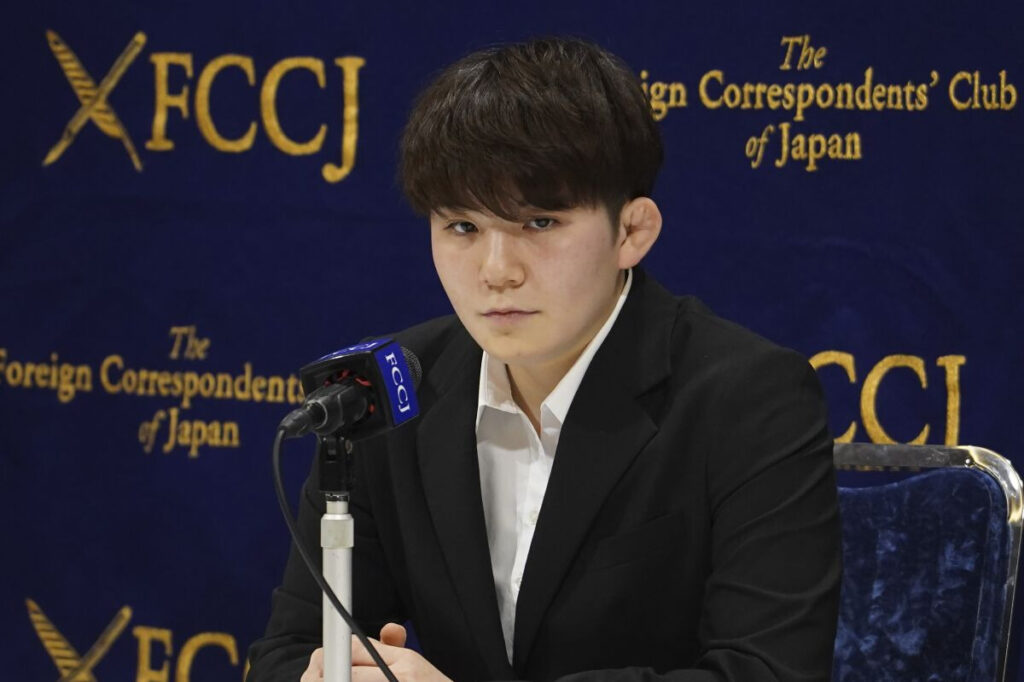Rina Gonoi, a determined young woman from Higashi-Matsushima in Miyagi Prefecture, Japan, had two dreams that shaped her life. She aspired to become a soldier and to compete in the Olympics as a judo player. Trained in judo from the age of four by her brother, Rina’s passion for both pursuits burned brightly.

Her dreams were reinforced when, at the age of 11, she witnessed the Self-Defence Forces (SDF), also known as the armed forces in Japan, in action during the aftermath of the devastating 2011 earthquake and tsunami. The SDF provided vital assistance to Rina’s family and community, which had taken refuge in an evacuation center.
Moved by the support and aid provided by female soldiers, Rina felt inspired to work for society and its people. Determined to contribute, she joined Japan’s army, the Ground Self-Defence Force (GSDF), hoping to fulfill both her dreams.
Unfortunately, Rina’s dreams were shattered when she encountered a distressing reality within her unit. From the moment she joined, she faced relentless sexual harassment on a daily basis. Colleagues and superiors subjected her to unwelcome physical contact, explicit remarks, and derogatory comments about her body.
The breaking point came in August 2021 during a training exercise in the mountains. Three male colleagues called Rina into a tent where they were drinking. They coerced and assaulted her, leaving her feeling violated and helpless. Shockingly, around a dozen colleagues witnessed the assault without intervening, some even finding it amusing.
Rina reported the incident to her superiors, but her complaint was dismissed due to lack of witness testimony. Eventually, the three men involved were referred to prosecutors for indecent assault, but the case was dropped due to insufficient evidence. Feeling defeated, Rina made the difficult decision to quit and return home, exhausted both mentally and physically.
Against the advice of her family and those around her, Rina made the brave choice to share her story publicly. In Japan’s male-dominated society, victims of sexual violence are often silenced and shamed. However, Rina chose to confront the Japanese military institution that failed to protect her. She shared her experience on YouTube, becoming a rare case that captured the nation’s attention.
Her act of speaking out encouraged others, both within the military and beyond, to share their stories of sexual violence. Rina also collected over 100,000 signatures for a petition urging the defense ministry to investigate her case. However, her courage was met with a backlash. Critics subjected her to online abuse, body-shaming, and even threats.
Rina’s case is not the first to receive national attention in Japan. In 2019, journalist Shiori Ito won her civil lawsuit against a prominent reporter who had raped her. That same year, the Flower Demo movement began, with victims of sexual violence and their supporters gathering across Japan to protest unjust acquittals and advocate for changes to the country’s sexual violence laws.
The existing laws in Japan have faced criticism for their discriminatory nature and the burden they place on victims to prove not only lack of consent but also factors such as assault or intimidation that prevented them from resisting. In response, the Japanese government approved a bill in February to raise the age of sexual consent from 13 to 16, marking an important step in legal reforms.
Nevertheless, advocates like Minori Kitahara, who started the Flower Demo movement, believe that more change is needed. Kitahara highlights the importance of representation in the government to address the challenges faced by women and to ensure their experiences are understood and addressed adequately.
Rina Gonoi’s journey, marked by her pursuit of dreams and her battle against sexual harassment, serves as a powerful reminder of the obstacles faced by victims in Japanese society. By sharing her story and demanding change, Rina has become an inspiring figure for those seeking justice and equality in a system that has long silenced their voices.
Conclusion: A Trailblazer for Change
Rina Gonoi’s aspirations of becoming an Olympic judo player and serving as a soldier were tragically overshadowed by the pervasive sexual harassment she endured within the Ground Self-Defence Force. However, Rina’s decision to confront her oppressors and share her story publicly has ignited a nationwide conversation about sexual violence in Japan. Her courage has inspired others to break their silence, leading to collective demands for legal reforms and a more inclusive society. Rina Gonoi stands as a symbol of resilience, determination, and hope, reminding us all of the urgent need for change.
